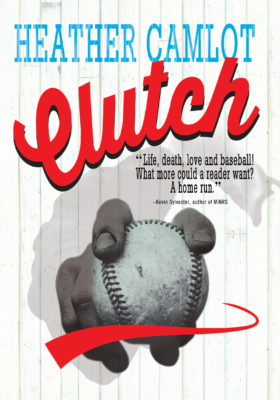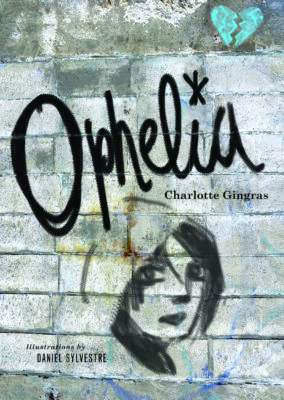Heather Camlot’s meticulously researched and lovingly crafted debut novel Clutch transports readers to Montreal in 1946 – the year Jackie Robinson played for the professional minor league baseball team the Montreal Royals, as the first African American to join modern organized baseball. In Camlot’s story, it’s also when twelve-year-old Joey Grosser’s dad dies. Readers follow Joey around his Jewish neighbourhood on his difficult but transformative journey into manhood.
The story dazzles with tight, pithy writing and accurate historical details that are smoothly woven in. Even without his father, Joey is committed to doing everything he can to make the grocery store his family owns a financial success. Each chapter opens with a historical newspaper quote about Robinson – creating a sort of parallel between Joey and Robinson’s trials (Robinson faced opposition and racism that season and beyond). They also help paint a picture of what it could have been like to live in the city during that momentous baseball season.

Clutch
Heather Camlot
Red Deer Press
$12.95
paper
240pp
9780889955486
Everyone is struggling to make their way, including a small-time criminal who tries to rope Joey into his shenanigans, and there’s a lot at stake. In time Joey comes to his own realizations about his dad, money, and friendship: perhaps in many ways, buying your seven-year-old super-fan brother peanuts and Cracker Jack at the ball game is pretty much as good as it gets.
It’s a notebook that takes us into the inner sphere of Ophelia, the protagonist of Charlotte Gingras’s eponymous novel, something the fifteen-year-old would not – or could not – otherwise allow.
Through written entries, sketches, and poems addressed to a writer who gives her the notebook, Ophelia shares her palpable pain. Secrets come out: an incident of sexual abuse, her complicated relationship with her mother, dealings with the “herd” at school. Credit is due to the translators for giving English readers access to Ophelia’s unique voice.

Ophelia
Charlotte Gingras
Translated by Christelle Morelli and Susan Ouriou
Illustrated by Daniel Sylvestre
Groundwood Books
$18.95
paper
264pp
9781773060996
It’s painful to watch Ophelia push people away and hurt them with insults, especially Ulysses, who’s overweight and bullied. But it also makes the growing closeness between the two teenagers all the more satisfying. Although Ophelia’s notebook culminates in a love story, it doesn’t happen at the cost of her development as a person and artist.
“I’m discovering the light that exists in certain people,” Ophelia says. Her first love does all the opening and healing it should, as she and her boyfriend replace their idealized and theoretical notions of love and lust with the reality of one another. mRb






0 Comments